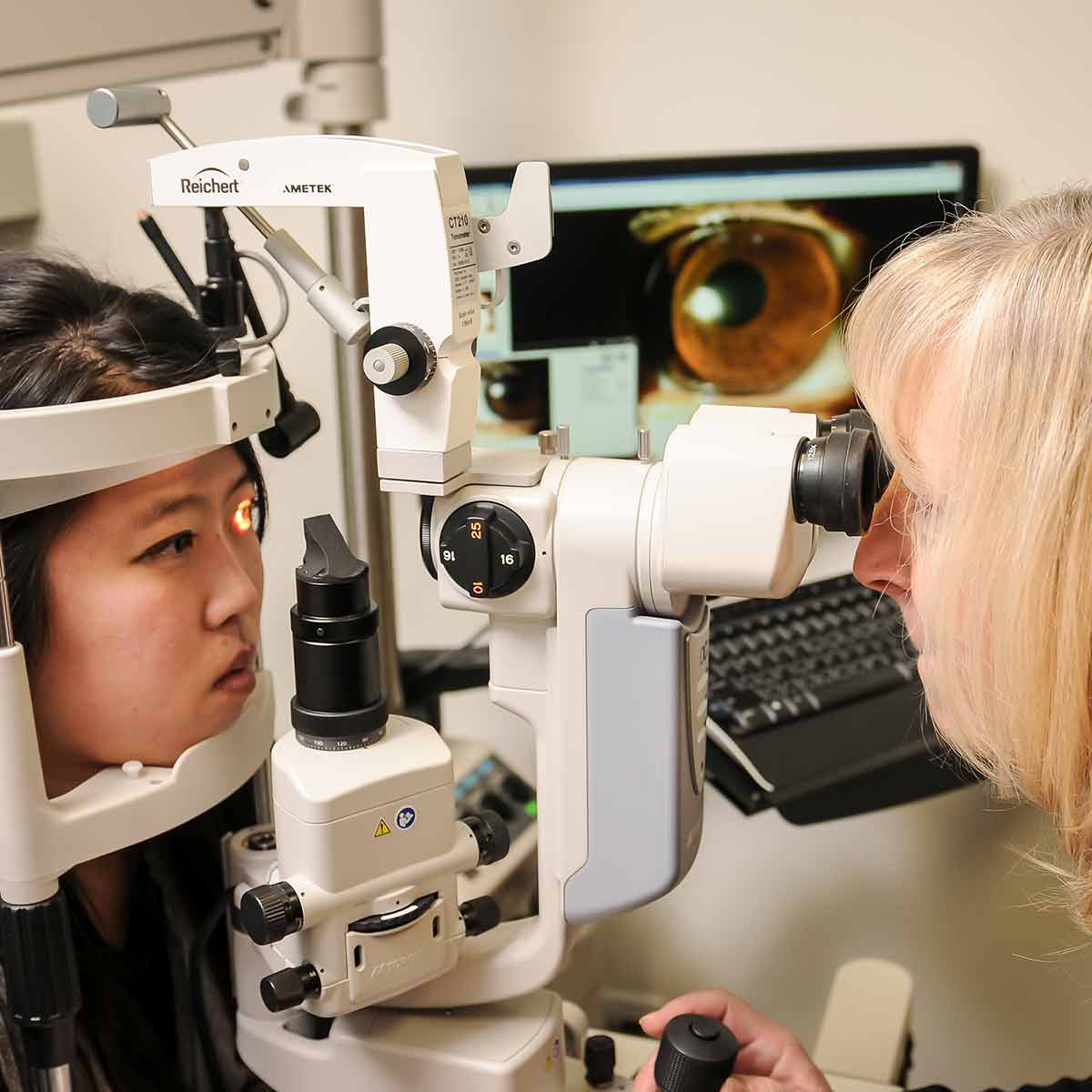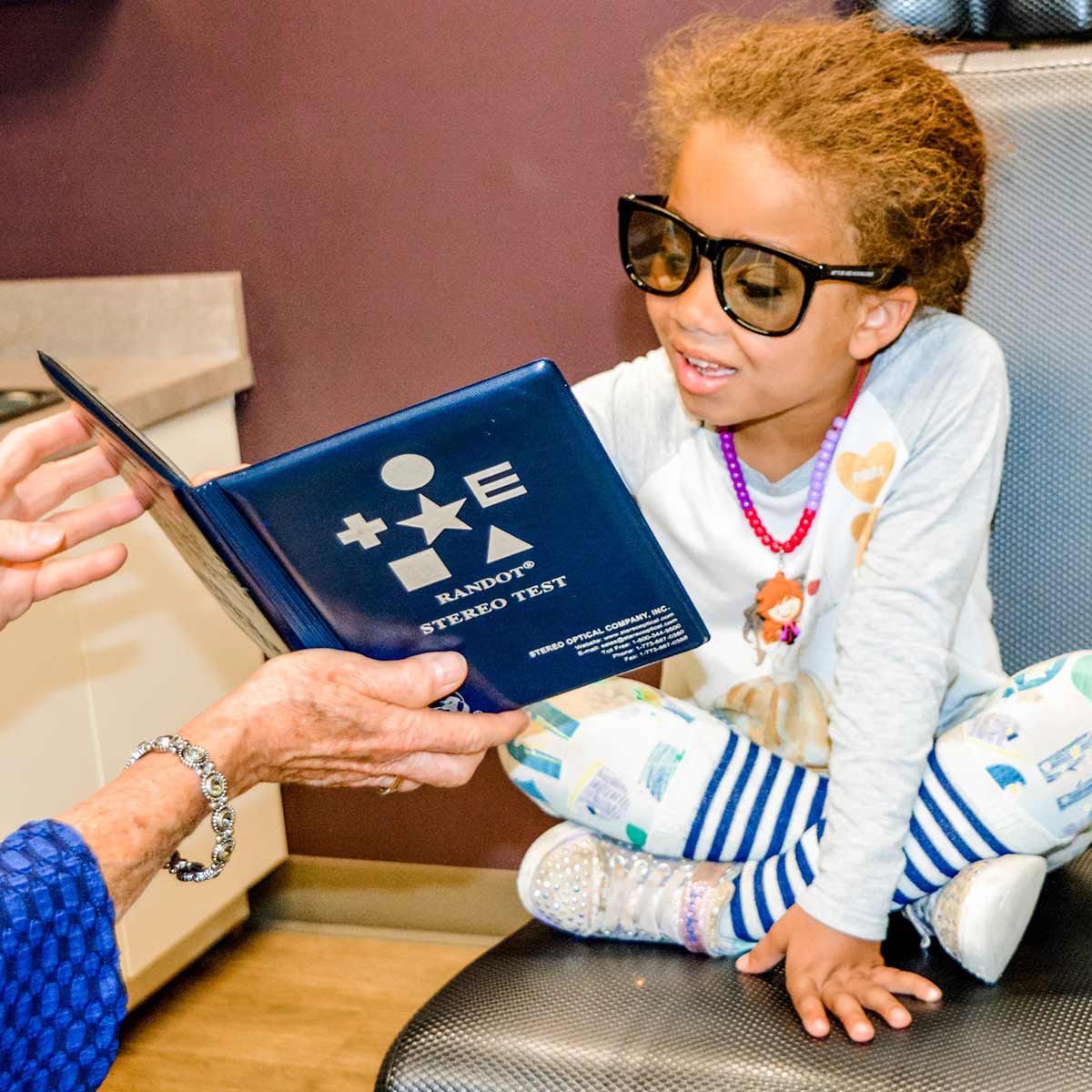
Comprehensive Vision/Eye Exams
EYE EXAMS FOR THE WHOLE FAMILY
Our comprehensive vision examinations go beyond 20/20 vision. We focus on diagnostic, preventive, and therapeutic care.
The American Optometric Association (AOA) recommends a yearly eye exam for kids and adults, not only to detect and to diagnose vision changes or problems, but to also maintain eye health.
The Importance of Comprehensive Vision/Eye Exams
Do you need an eye exam to update your prescription?
Annual comprehensive eye examinations are important, even if you do not feel you have any vision problems or even if you have not noticed any changes. Some eye diseases such as glaucoma, a disease caused by increased pressure in the eye, commonly go unnoticed by adults. When your ocular health is regularly monitored, you are engaging in preventive action to protect and maintain your health as well as allow for early treatment.
Our comprehensive eye exams assess the health of your eyes and the quality of your vision, in addition to assess the functional success of your current glasses and/or contact lenses.
Vision exams are more important than ever… here’s why
Comprehensive vision examinations are important for the prevention of vision problems created or aggravated by today’s academic and professional demands. The 21st century lifestyles demand more from our vision than ever before. Adults and kids in our technological society constantly use their near vision at work, school, and at home. Environmental stresses on the visual system (including excessive computer use or close work) can sometimes induce headaches and/or visual difficulties which can be effectively treated with corrective lenses and/or Vision Therapy.
In addition to evaluating your eye health and quality of vision, we analyze your entire functioning visual system including:
- Focusing (accommodation)
- Tracking (pursuits and saccades)
- Eye teaming (binocular vision)
- Depth perception (stereopsis)
If more complex visual issues are detected, then additional binocular testing maybe be ordered to assess:
- Strabismus (crossed/wandering eye)
- Amblyopia (“Lazy eye”)
- Convergence Insufficiency
- Convergence Excess
How often do adults need to see an optometrist?
The AOA recommends an annual eye exam for any patient who wears glasses or contact lenses.
If a patient does not wear glasses or contact lenses, it is still important to complete an annual eye examination to monitor ocular health as many conditions go unnoticed without an eye exam.
If a patient has a systemic health condition, such as diabetes or high blood pressure, an annual eye exam becomes increasingly more important. Often, doctors recommend more frequent eye examinations (more than annually) for such conditions as many diseases can have an impact on your vision, eye health, and systemic health.
Vision/Eye Exams for Kids and Infants
How often do kids need to see a developmental optometrist?
80% of learning happens through the visual system
The AOA recommends that prior to school, children receive a complete vision exam at least at the ages of six months, three years, and five years, unless otherwise directed by the child’s optometrist.
It is particularly important that a child have a complete evaluation in the summer prior to entry into Kindergarten.
While in school, yearly evaluations are recommended. Vision is more than only 20/20 vision and if learning or developmental issues are a concern, additional developmental vision analysis (DVA) testing may also be recommended.



Infantsee® Program
FREE EYE EXAMS FOR INFANTS
Infants explore and experience their world through vision. Development is led by vision, and therefore healthy eyes play a critical role in proper development. Early detection of eye and vision problems can prevent developmental delays.
The American Optometric Association (AOA) and The Vision Care Institute of Johnson & Johnson Vision Care, Inc., have partnered to create InfantSEE®, a no-cost public health program developed to provide professional eye care for infants nationwide. The InfantSee Program provides a one-time comprehensive eye assessment to infants in their first year of life. This offers us the opportunity of early detections of potential eye and vision problems at no cost, regardless of income.
The optometrists at Hellerstein & Brenner Vision Center, P.C. are InfantSEE® providers.
For more information on InfantSEE®, go to https://infantsee.org
